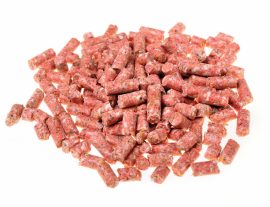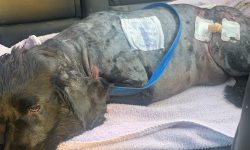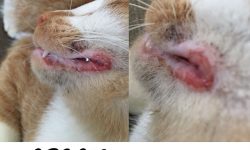Rats and mice are a nuisance when they pop up uninvited and many people use rodenticide in the form of “rat bait” in an effort to control them within their homes. Although this may be effective, rat bait can cause significant problems if accidentally eaten by the household pet.
The most common active ingredient in rat bait is Brodifacoum, a warfarin-like agent. Both work by preventing the body from utilising vitamin K which has dire consequence for the clotting factors.
But what are clotting factors? - The clotting factors are proteins within the blood which are required for control over bleeding. Without the clotting factors, blood would freely flow from any cut or wound but also into any space within the body (e.g. Lungs, Thorax and Abdomen).
If you suspect that your pet has inadvertently eaten rat bait, it is essential that they are brought to a veterinarian as soon as possible! If brought in early, we can induce vomiting and remove the bait from the stomach and sometimes they may not require any further treatment.
However it does take at least 3 days before the clotting factor levels drop to where you see clinical signs so it is good to remain vigilant even if the ingested bait is removed. If they do require further treatment and are not showing clinical signs of bleeding, the simple solution is to give them vitamin K with their food for a period of 30 days. Without this medication there is a risk of death. It is always better to prevent the problem by ensuring there is no way for your dog to get at rat bait, and if it does, to visit the vet immediately.
Written by Lindsay Jin, final year veterinary student - The University of Sydney






